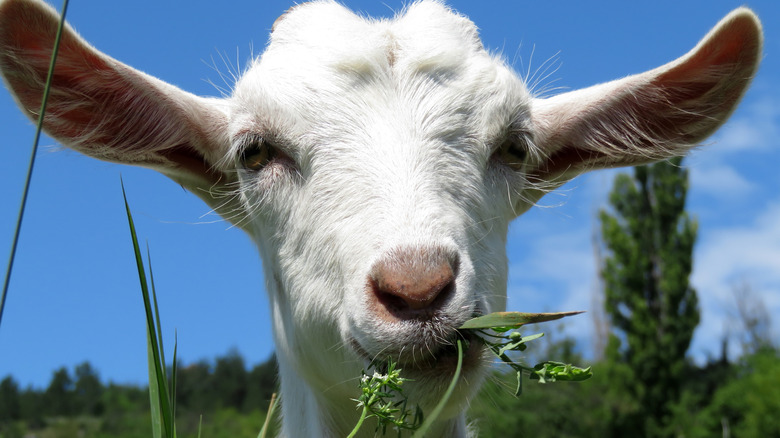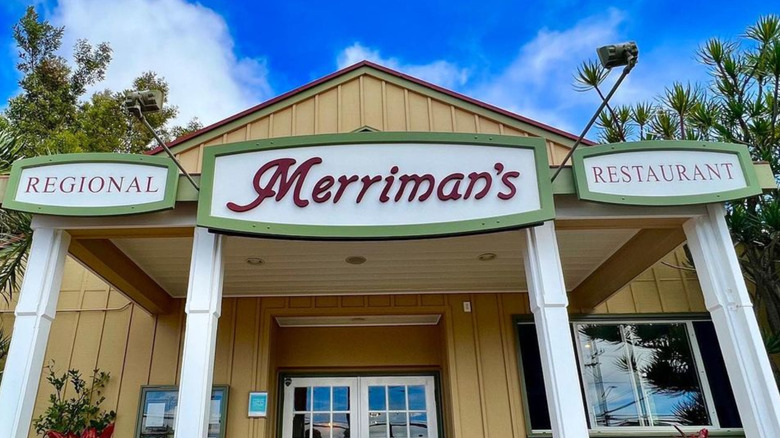Goats Helped This Restaurant Become Hawaii's First-Ever Carbon-Neutral Dining Experience
While many restaurants are making strides to become bastions of environmental stewardship, a few have actually made enough changes to become completely carbon neutral. For a business to be considered carbon neutral it must take steps to reduce carbon dioxide emissions, which includes sourcing food and ingredients from producers who also follow this practice. The restaurant must also calculate how much CO2 their business contributes to the atmosphere, and invest things like reforestation or green energy to help offset these emissions. The Seattle-area Taco Time chain is one example of a carbon neutral restaurant in the U.S. And now, Hawaii can boast of being home to one as well.
Merriman's fine dining restaurant in Waimea, located on the state's largest island, achieved this goal through their work with GreenPlaces, an organization that helps businesses assess and reduce their carbon footprint. Per the restuarant's 2023 Sustainability Plan, some of the ways Merriman's achieved this include putting solar panels on the roof and labelling menu items with carbon footprint figures. Sourcing almost all of their food locally and using lighter wine bottles which generate less emissions when created and when shipped also play a part, per Food & Wine. One of the most unexpected carbon-saving moves on Merriman's part came by way of goats — specifically, a partnership of goats and seaweed.
It's a surprisingly effective way to reduce methane emissions
How do goats cut down on carbon emissions? By feeding on foods that make them less, um, gassy.
Methane gas produced by animal agriculture, the raising of cows, pigs, goats, and other livestock for human consumption, is a major contributor to total greenhouse gas emissions. Merriman's found a way to combat this through a partnership with two local producers in Hawaii: a goat farm and a seaweed supplier. They discovered that, when fed a diet of natural, locally abundant seaweed, goats produce significantly less methane. Merriman's plans to use "carbon-friendly" cheese made from the milk of these less gassy goats on their menu. These goat cheese dishes include Kamuela Chilaquiles and their Salad of Yokoyama Farm Beets.
Merriman's founder Peter Merriman has been at the forefront of the sustainability movement since he first opened his restaurant more than thirty years ago, and he now operates four restaurants across the Hawaiian islands. "Sustainability is important for our industry, not just in Hawaii, but all over," he shared with Food & Wine. "We can at least do our part."

